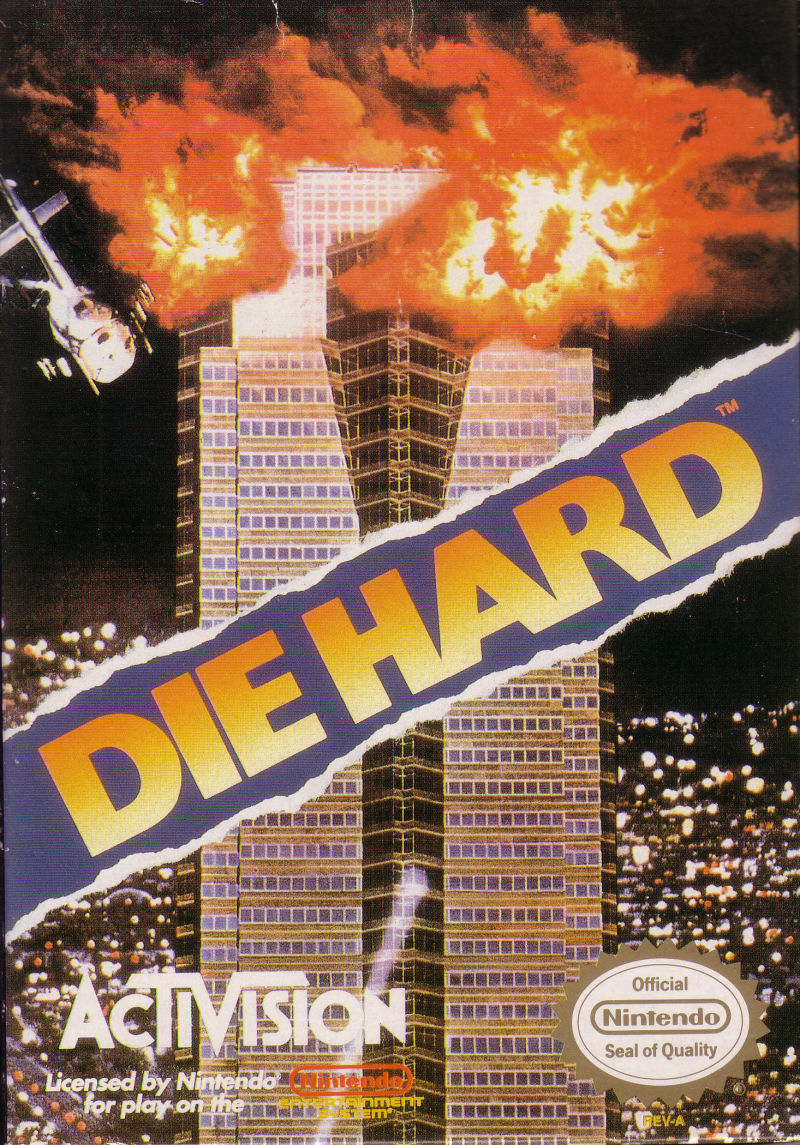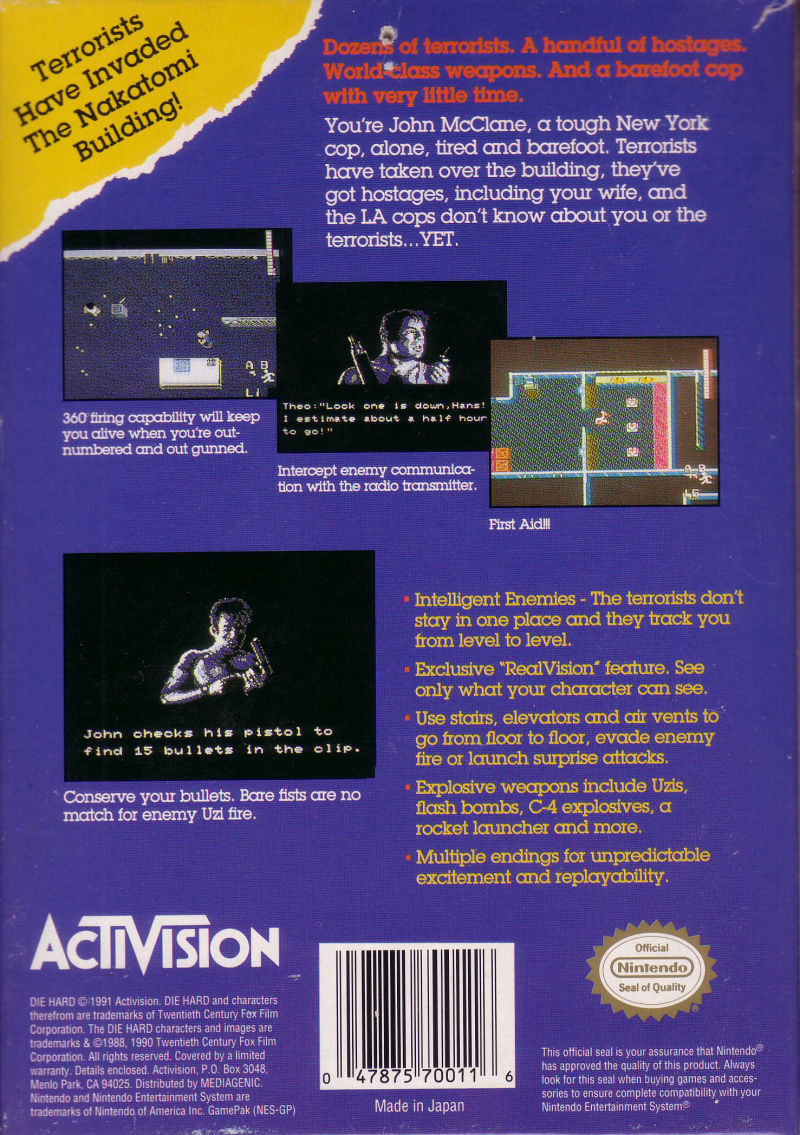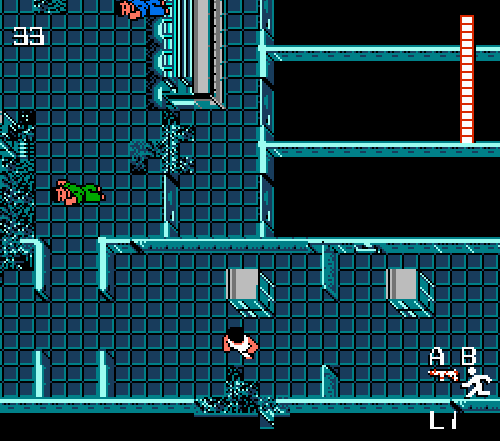John McClain decides to visit his wife Holly in Nakatomi Plaza, only to discover that she is taken hostage on the 30th floor, along with a bunch of other hostages. The main terrorist, Hans, is after the money locked away in a safe on the 30th floor. His hacker, Theo, is slowly breaking the locks into the vault. It’s up to McClain to stop them. Die Hard for the Nintendo Entertainment System is very different from its other counterparts. The game is played from a top-down perspective, rather than the 1st-/3rd-person perspective.
There are 40 terrorists scattered throughout the building, and the task is to clear each floor of terrorists. The stairwell, air duct or the express elevator is used to travel only to Floors 31-35. These are freely accessible at any time, doing away with linearity, and more floors are unlocked in “Advanced” mode. At the start of the game, John can only use his fists to deal with foes, but after bringing down some terrorists, several weapons become available, including the pistol, machine gun, C-4 explosives, rocket launcher, and flashbangs, using their weapons against them. When hit by these terrorists, John loses some life, but it can be restored by collecting soda cans and medkits. The game ends when all life is lost.
One interesting aspect of the game allows the player to listen to Hans shouting orders to his guards through a two-way radio. Also notable is the “foot meter”. It starts out full, but will eventually decrease if John steps on shattered glass or runs around at a faster speed. If the meter is empty, he will walk much slower than with a full meter. This may have been added in tune with the film, where the main character John McClain’s feet end up in pretty bad shape near the end. Parts of the environments are destructible, most notably vending machines (receive free soda), glass walls and windows. Not all parts of the environment are shown on the screen all the time – a fog of war appears to shroud nearby areas in darkness.
The missions are time limited. There about four minutes before one of the six locks are opened (shown in the status screen), but more time can be gained by destroying the main computer on the fourth level. Once all the locks have been opened, there are only a few minutes to escape. Once this time expires, the game ends.
Like its counterparts, the game features cinematic sequences, which change the story depending on which actions are taken.
Cover Art:
Screenshots:





